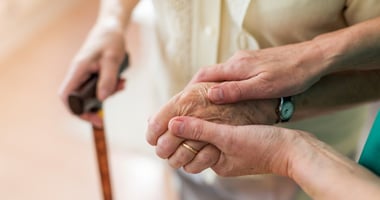Alcohol Consumption May Increase Dementia Risk in Older Adults
 |
Majken K. Jensen, Ph.D., of the Harvard T.H. Chan School of Public Health and colleagues used data from the Ginkgo Evaluation of Memory Study to track the development of dementia in 3,021 people aged 72 years and older. The study was conducted from 2000 to 2008, and the average follow-up for participants was six years. At the beginning of the study, all participants underwent a series of tests to determine their cognitive ability. None of the participants had dementia when they entered the study, but 473 had mild cognitive impairment. Participants underwent cognitive testing every six months (using the Modified Mini-Mental State Examination and the Clinical Dementia Rating scale) until the end of the follow-up period, they were diagnosed with dementia, or they died, whichever came first.
Among participants who had mild cognitive impairment at the beginning of the study, those who drank more than 14 drinks a week were more likely to develop dementia than those who drank fewer than one drink a week. The association between alcohol intake and cognitive decline was affected by the presence of mild cognitive impairment at the start of the study.
“These results suggest that while caring for older adults, physicians should carefully assess the full dimensions of drinking behavior and cognition when providing guidance to patients about alcohol consumption,” the researchers concluded.
For related information, see the American Journal of Psychiatry article “A Geriatrics Perspective on Dementia Prevention and Treatment.”
(Image: iStock/skynesher)
Follow Psychiatric News on Twitter!
And check out the new Psychiatric News Brief on Alexa-enabled devices.
And check out the new Psychiatric News Brief on Alexa-enabled devices.





